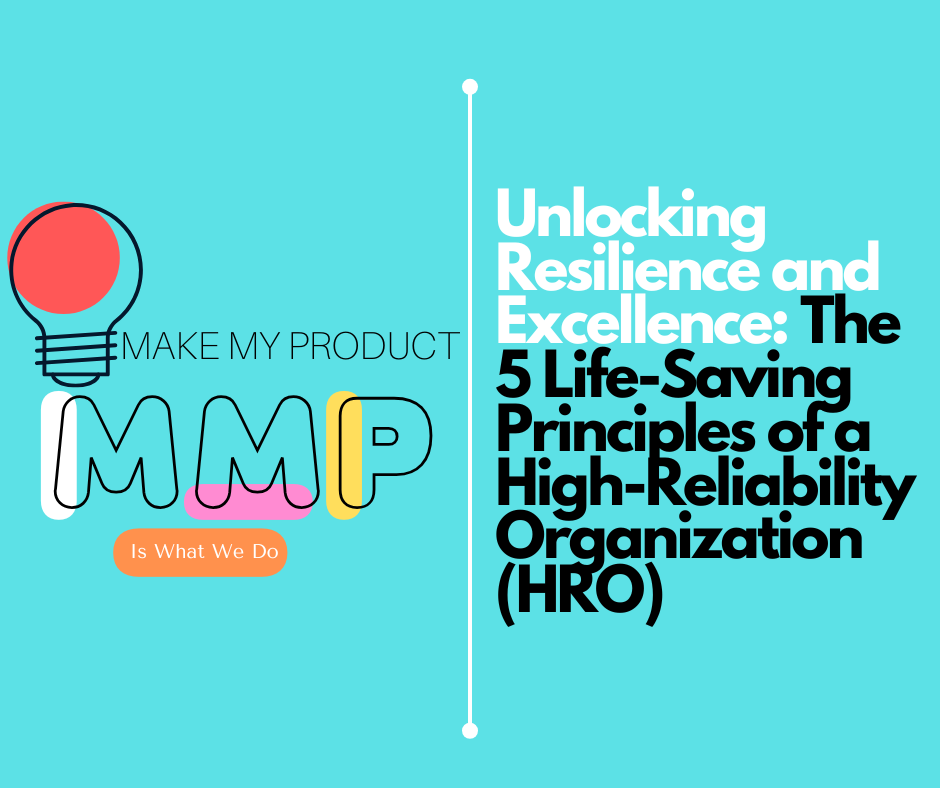In today’s unpredictable and high-stakes world, some organizations consistently outperform others, even under the most stressful and hazardous conditions. From hospitals saving lives to airlines ensuring safety in the skies, High-Reliability Organizations (HROs) are built differently. They don’t rely on luck. They rely on discipline, alertness, and the relentless pursuit of perfection.
Now, more than ever, every business, institution, and leader must adopt the core principles of HROs—not just to thrive, but to survive. The margin for error has shrunk. Expectations are rising. Reputation, lives, and futures are on the line. The cost of not becoming reliable? Devastating failure.
If you’re serious about transforming your organization into a model of safety, precision, and operational excellence, you must internalize and implement these 5 life-saving principles of High-Reliability Organizations.
1. Preoccupation with Failure
HROs don’t wait for failure—they look for it. They’re always alert, always anticipating. They treat every near miss, irregularity, or deviation as a warning signal, not a coincidence. This mindset keeps organizations from growing complacent.
Action Point: Start today by revisiting your past errors. What were the silent warnings before the storm? Build a culture that learns obsessively and refuses to let small mistakes snowball into disasters.
2. Reluctance to Simplify Interpretations
Oversimplification is dangerous. HROs reject blanket assumptions and surface-level solutions. They know complexity is real and demand deeper understanding.
Action Point: Encourage your teams to ask better questions. Challenge every oversimplified report. Dive deeper. The truth lies in the details.
3. Sensitivity to Operations
In an HRO, everyone—from the top executive to the frontline staff—stays connected to real-time operations. Leaders don’t hide in boardrooms; they listen to the ground.
Action Point: Break the walls. Stay close to your frontline. Empower employees to speak up without fear. Visibility and communication save lives—and companies.
4. Commitment to Resilience
Resilience isn’t about avoiding problems—it’s about bouncing back stronger. HROs train, simulate, and prepare obsessively for the worst-case scenarios. They develop muscle memory for crisis.
Action Point: What’s your backup plan? What happens when Plan A fails? Run drills. Build systems that bend but don’t break. Your survival may depend on it.
5. Deference to Expertise
Hierarchy takes a back seat in HROs when it comes to crisis. The person with the most experience, not the most authority, leads the response. That’s how errors are stopped in their tracks.
Action Point: Identify your true experts. Give them the space to lead when it matters. Respect skill over rank. In a high-pressure moment, it could be the difference between control and chaos.
Why This Matters Now
We are living in volatile times. Economic uncertainty. Health crises. Environmental threats. Cyber vulnerabilities. Every organization—big or small, public or private—must become more reliable, more aware, more prepared.
HRO principles are not just for hospitals or nuclear plants. They are universal survival tools—and every business leader, entrepreneur, policymaker, educator, and innovator must begin to treat them that way.
Don’t wait for a failure to change. Lead with urgency. Train your people. Transform your systems. Embed HRO thinking in your daily operation.
The future belongs to the vigilant.
The resilient.
The high-reliability thinkers.
Act now—before it’s too late.

























